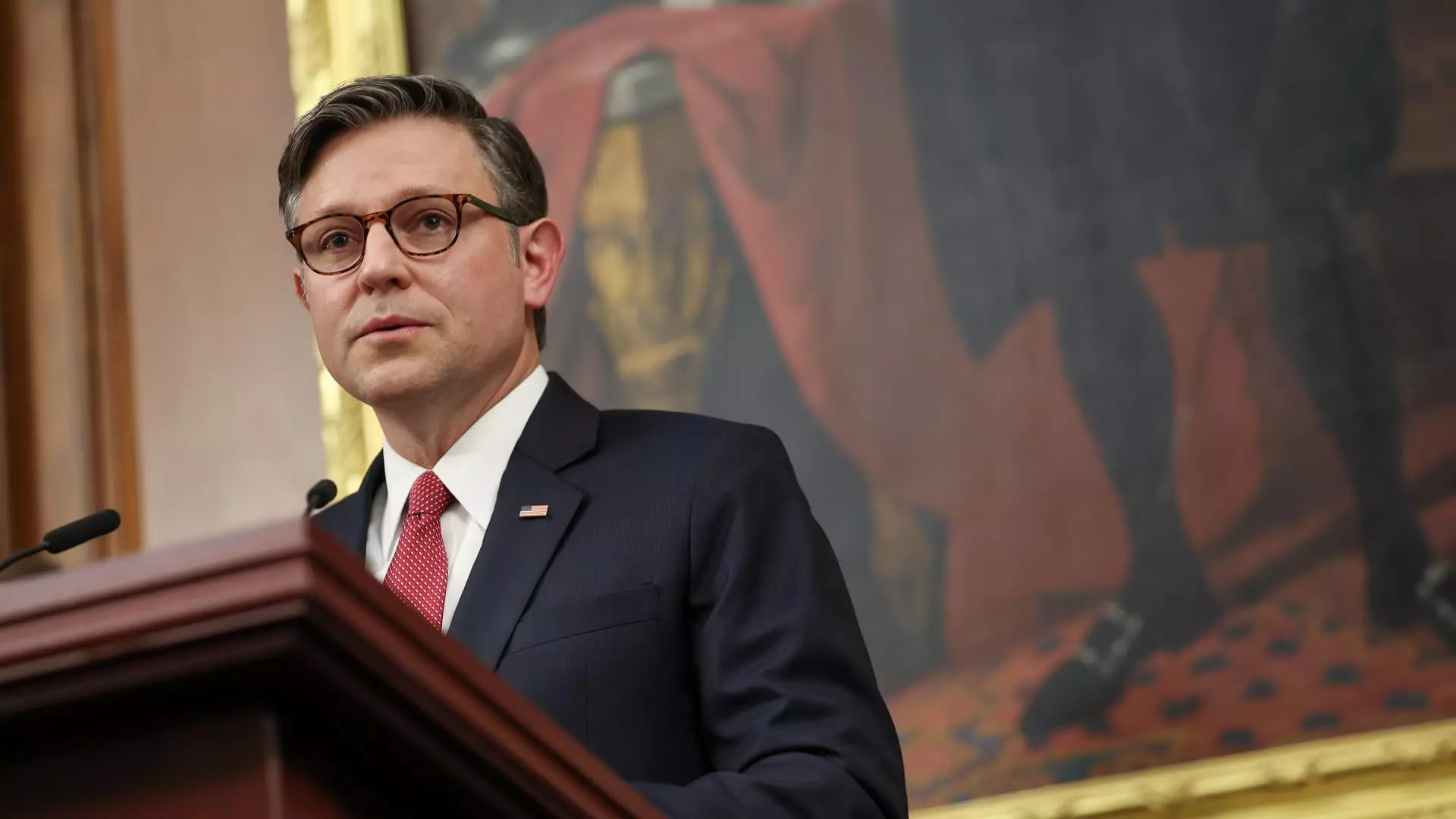House Speaker Mike Johnson’s recent declarations regarding the War Powers Act represent a troubling and often overlooked aspect of American governance. By labeling this crucial law as unconstitutional, Johnson not only evokes the spirit of executive overreach but also aligns himself with a broader trend that undermines the delicate balance of power established by the Founding Fathers. As Congress continues to grapple with its role in matters of war, Johnson’s rhetoric signals a deeper issue about authority, accountability, and the very essence of democratic governance.
The War Powers Act of 1973 was conceived in the wake of Vietnam, intending to curb executive power and ensure Congressional oversight in military engagements, regardless of their scale. However, Johnson’s assertion that this foundational legal framework infringes upon the president’s Article II powers raises significant concerns. It is true that the Constitution entrusts the president with the role of commander-in-chief; however, history has shown us the dangers of conflating unchecked military power with executive authority. The House Speaker’s dismissal of the War Powers Act invites a troubling precedent where military action could be increasingly dictated by a single individual rather than a collective legislative body representing the will of the people.
The Abandonment of Legislative Responsibility
For over half a century, Congress has largely abdicated its responsibility to declare war, choosing instead to engage in a passive role while presidents of both parties have initiated military actions with varying degrees of justification. Historically, the last formal declaration of war occurred during World War II, leaving a yawning chasm of unaccountability that has persisted ever since. This abdication of duty reflects a disconcerting reality: Congress has permitted a dangerous power dynamic that allows the executive branch to initiate conflicts at will, often with scant oversight or caution.
The recent military strikes that Speaker Johnson defended as “clearly” within presidential powers can easily send a message to future administrations that military interventions can be enacted without the need for robust debate or legislative approval. This trend suggests a worrying normalization of unilateral military action, eroding the constitutional framework designed to require meaningful dialogue and consensus.
Bipartisan Support for Restraint
Amidst this contentious dialogue, it is essential to note that a faction of lawmakers is calling for renewed adherence to the principles underlying the War Powers Act. Representatives Thomas Massie (R-Ky.) and Ro Khanna (D-Calif.) have put forth a resolution aimed at preventing unauthorized military action in Iran, demonstrating that accountability should transcend party lines. Their efforts to establish checks on presidential power should be commended as a necessary counterbalance to the executive’s growing dominance over military strategy and foreign policy.
Despite ideological differences, the bipartisan support for this resolution underscores a shared recognition of the need for clarity and restraint regarding the use of military force. As the geopolitical landscape continues to evolve, lawmakers must be willing to embrace dialogue and foster a culture of accountability that respects both the Constitution and the will of their constituents. It is imperative that Congress reclaims its authority and engages in substantive decision-making about matters of war, to prevent the United States from entering conflicts driven by whims rather than sound strategy.
The Consequences of a Lethargic Congress
Johnson’s reluctance to engage meaningfully with the War Powers Act reflects a broader malaise within Congress, which appears increasingly disconnected from its constitutional obligations. This apathy not only has profound implications for U.S. foreign policy but also influences public perceptions about the efficacy of government institutions. When citizens witness a Congress that appears unwilling or unable to assert itself in the face of executive overreach, it breeds cynicism and disengagement from the political process.
The rhetoric surrounding the nuclear strike approval reflects not just a disagreement about the War Powers Act itself, but also speaks volumes about a broader political culture that seemingly prioritizes expedience over principled governance. As seen in Trump’s derogatory remarks towards Massie, the political environment encourages division rather than unity in resolving contentious issues surrounding military action.
In sum, a serious conversation must unfold within Congress concerning its war powers and the necessity of checks on the executive’s military authority. For the sake of American democracy, lawmakers on both sides must unite to fortify the constitutional safeguards intended to prevent any one branch from wielding unchecked power.

Leave a Reply